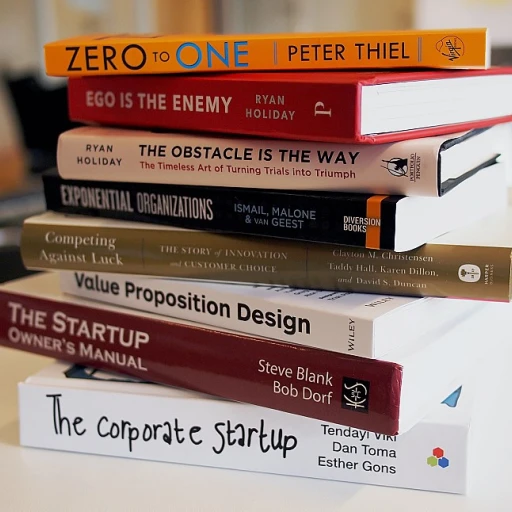
Understanding the Role of a Business Process Improvement Consultant
Decoding the Job of a Process Improvement Expert
To embark on a fruitful journey as a Business Process Improvement Consultant, it's essential to grasp the core responsibilities and expectations from this role. At its heart, the job revolves around identifying process inefficiencies and implementing change to enhance business processes within an organization. Consultants dive deep into the operational frameworks to determine areas that demand tweaks and refinements.
A key facet of being a process consultant involves offering invaluable insights and consulting services tailored to management teams. These insights drive operational excellence and ensure smoother process improvements. Such changes not only optimize time management but also pave the way for increased customer satisfaction and cost-effectiveness.
Many among this cadre assist corporations in aligning with industry best practices, leveraging methodologies like Lean Sigma to drive transformation. In tandem, process consultants are pivotal in change management, ushering in new strategies and bolstering the adaptability of business operations.
BPI consultants don't just work in isolation. They work in tandem with various departments, including supply chain and operations, to harmonize efforts. This holistic approach often benefits from continuous improvement strategies, ensuring that solutions are not just implemented but ingrained within the organizational culture.
Understanding the diverse revenue streams tied to consulting can also be advantageous to those eyeing a transition into this field. As organizations seek refined operational efficacy, the demand for improvement consulting becomes even more pronounced, offering ample opportunities for aspiring consultants.
Essential Skills for Success in Business Process Improvement
Key Skills for Thriving in Business Process Improvement Consulting
Embarking on a career as a Business Process Improvement Consultant entails the acquisition of certain key skills that will enable you to effectively drive change and foster continuous improvement within organizations. Having a firm grasp on these skills will not only help you transition more smoothly into your new role but also ensure you excel in delivering meaningful, efficient improvements.- Analytical Thinking: One of the cornerstones of process improvement is the ability to critically analyze current business processes to identify inefficiencies. Analytical thinking helps you pinpoint areas that require improvement and develop solutions tailored to a company's unique needs.
- Problem-Solving Capabilities: As a consultant, you'll frequently encounter unexpected challenges or obstacles. Problem-solving skills are crucial in devising creative solutions that enhance operations and optimize business processes.
- Project Management: Since Business Process Improvement projects often involve cross-departmental collaboration, project management skills are vital. This encompasses the ability to plan, execute, and monitor projects to ensure they are completed on time and within budget.
- Communication Skills: To promote change, you must effectively communicate ideas and strategies to both management and front-line employees. Strong communication skills facilitate the successful implementation of process improvements.
- Knowledge of Best Practices: Familiarity with industry-standard methodologies such as Lean Sigma and continuous improvement principles is essential. These practices enable consultants to apply structured frameworks when analyzing and enhancing processes.
Assessing Your Current Skill Set and Experience
Evaluating Your Expertise for a Career Shift
Transitioning into a Business Process Improvement Consultant role necessitates a thorough evaluation of your current skills and experience. Recognizing your strengths and areas for development is key to a smooth transition. Here's how to assess where you stand and where you need to focus your efforts:- Analyze Your Existing Skills: Begin by listing the skills you already possess that align with business process improvement. Key skills in this field often include project management, analytical capabilities, and problem-solving. Determine how these skills can be transferred to an improvement consulting context.
- Experience Inventory: Look at your past roles to identify experiences where you played a part in process management or operational excellence. An understanding of lean sigma, change management, and continuous improvement will enhance your credibility as a process consultant.
- Identify Gaps: Once you’ve mapped your existing skills, identify gaps. Whether it's gaining a better understanding of process improvements or becoming adept in managing complex supply chain operations, knowing these gaps will help you focus on acquiring the necessary knowledge.
- Expand Your Knowledge Base: Enroll in courses or workshops to bridge these gaps. Focusing on gaining certification in areas like business process management or customer satisfaction could prove beneficial. Exploring the current best practices within consulting services can provide additional insight.
- Leverage Your Network: Leveraging relationships with mentors or colleagues within your network can offer guidance and support. This honest feedback helps ensure you're making informed decisions while navigating this pivot.
Overcoming Challenges in Career Transition
Embracing the Transition: Steps to Overcome Challenges
Transitioning to a career as a Business Process Improvement Consultant can be daunting. However, with careful planning and determination, these challenges can be effectively managed. Here are some strategies to enhance your transition journey:- Leveraging Transferable Skills: Your current skills may have more applicability than you think. Skills in strategic planning, project management, or data analysis can translate seamlessly into process improvement roles. Highlight these abilities in your consulting narrative.
- Understanding the Business Landscape: Familiarize yourself with the industries you aim to work in, such as supply chain or operational excellence. Each sector may have different best practices in continuous improvement or lean sigma methodologies that you'll need to grasp.
- Investing in Education and Training: To stay competitive, invest in education that aligns with industry demands. Specialized courses or certifications in process improvement or change management can provide a significant edge. These efforts demonstrate your commitment to becoming a skilled improvement consultant.
- Seeking Mentorship: Engaging with experienced consultants or consulting firms for guidance can offer insights into process management challenges you might encounter. These mentors can provide solutions to improve your transition pace and effectiveness.
- Acknowledging the Emotional Shift: Career transitions involve psychological adjustments. Recognizing the emotional impact of change and strategizing ways to maintain motivation and focus is crucial. Be prepared to adapt swiftly to the fast-paced nature of consulting services.
Building a Strong Professional Network
Networking to Propel Your Career Transition
Transitioning into a role as a Business Process Improvement Consultant requires a shift in your professional network. Building a strong network is crucial not only for learning about new opportunities in process improvement but also for gaining insights into industry best practices and methodologies such as Lean Sigma and change management. It's essential to connect with other consultants and professionals who are already established in the field.
Here are some effective strategies to expand your network:
- Attend Conferences and Workshops: These events are not only about learning new skills but also about meeting like-minded individuals who are passionate about process and continuous improvements.
- Join Professional Organizations: Engaging with groups focused on business process management and improvement consulting services can expose you to opportunities and solutions within your area of interest.
- Utilize Online Platforms: Platforms like LinkedIn can be invaluable for connecting with process consultants and accessing supply chain discussions or operational excellence forums.
- Engage with Consulting Firms: Firms often have entry points for aspiring consultants, and engaging with them can provide unique insights into customer satisfaction and process management projects.
Leveraging a robust professional network will help you learn from others' experiences, keeping you informed about process improvements and new consulting methodologies. This insight will not only help you in a consulting role but also in acquiring management services expertise that is necessary for your career transition.
Creating a Transition Plan and Setting Goals
Mapping Out Your Transition Path
Embarking on a career transition to become a Business Process Improvement Consultant requires a well-structured plan. The process is not just about attaining necessary skills, but also about strategically positioning yourself for success. Here's how to effectively plan your transition:- Set Clear Objectives: Determine what specific area within business process improvement you want to focus on. Whether it’s supply chain management, operational excellence, or lean sigma, having defined goals will guide your learning and professional development.
- Develop a Timeline: Time management is crucial in this transitional phase. Establish milestones for skills acquisition, networking, and job search activities. This roadmap will help you stay on track and make steady progress towards becoming a consultant.
- Identify Process Gaps and Opportunities: Reflect on your previous work experiences to identify which business processes can be improved or restructured. This exercise will not only highlight your potential consulting strengths but also help you understand the consulting services you may want to offer.
- Create a Personal Marketing Strategy: Leverage platforms like LinkedIn to showcase your process management skills and continuous improvement knowledge. Share insights on process improvements, management best practices, and customer satisfaction strategies to establish yourself as an industry thought leader.
- Seek Feedback and Adjust: Engage with current process consultants and improvement consulting firms to gather feedback on your transition plan. Be open to change and adapt your approach based on insights gathered from seasoned professionals.













